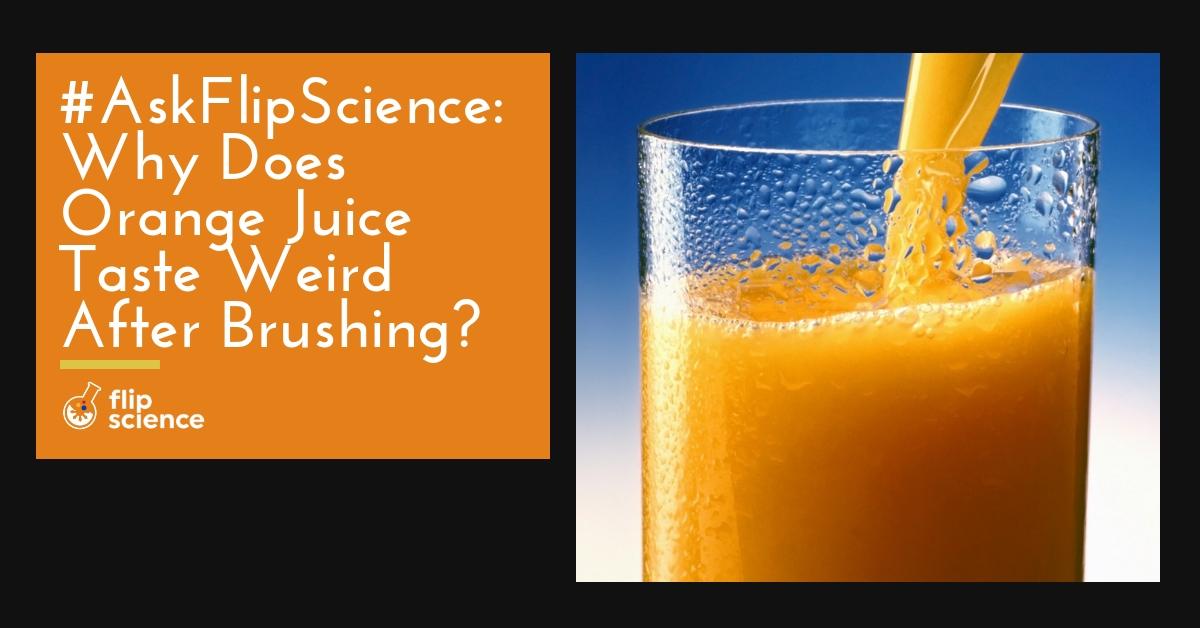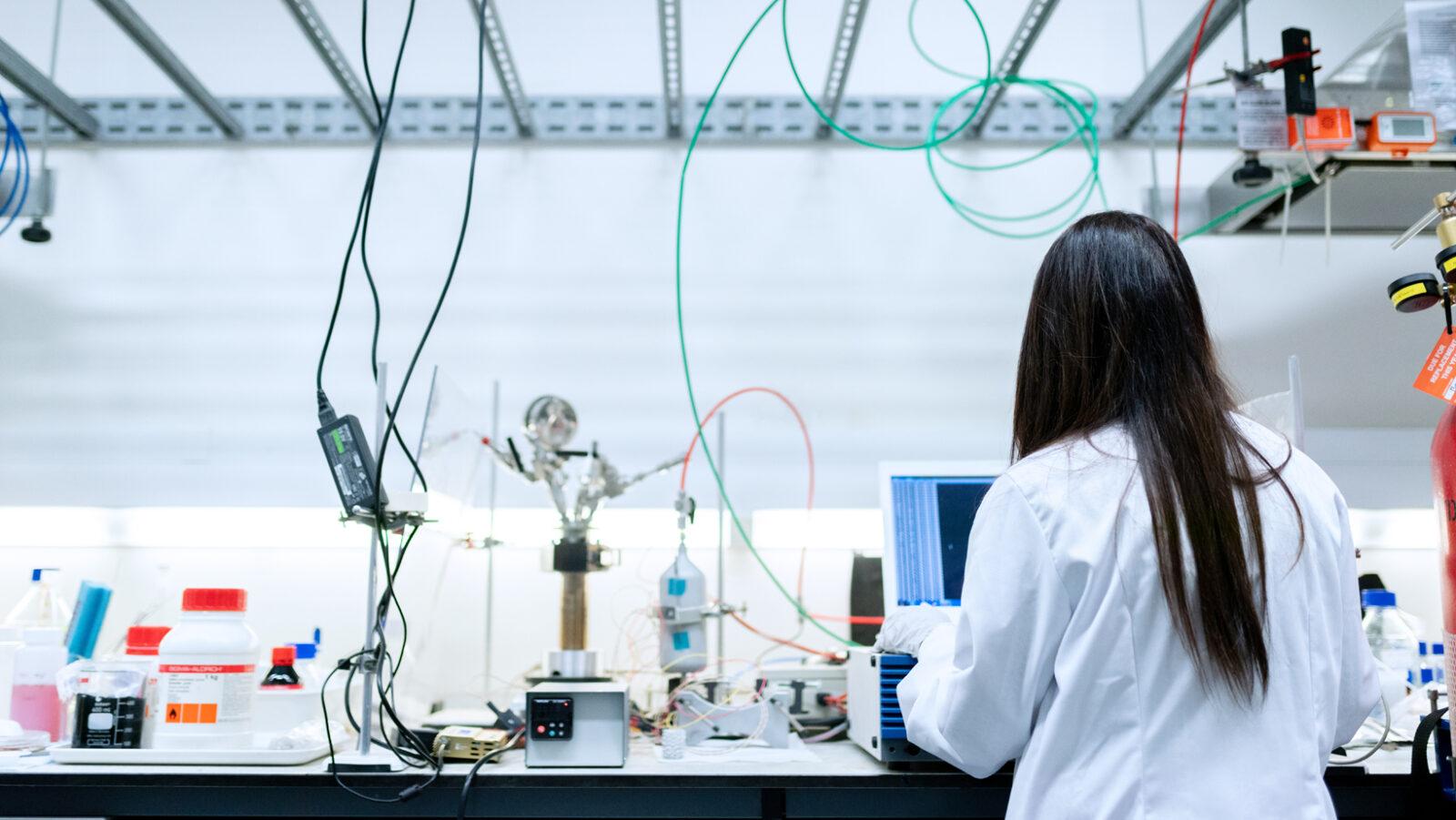Welcome to #AskFlipScience, where we answer even the strangest, silliest questions with science!
This week’s question: Why does orange juice taste weird after brushing?
Picture this: It’s a Monday morning, you’ve just finished dressing up, and you’re ready to leave for work. Before heading out, you decide to grab yourself a glass of orange juice. You take a big gulp, expecting some orangey goodness in your mouth, and then… bam.
Whatever you’re drinking, it doesn’t taste like orange juice at all. There’s this bitter, tart feeling in your mouth that makes you think you’ve swallowed some sort of cleaning product. But before you throw away the rest of the juice, you remember exactly you did before that: you brushed your teeth.
Turns out, there’s a really funny way toothpaste messes with your tastebuds – and in turn, your orange juice.
Your mouth has thousands of taste buds (mostly concentrated in the tongue) that help you differentiate the 5 most common flavors: salty, savory, sour, sweet, and bitter. These flavors come in differently shaped molecules that your tastebuds will sort accordingly. Every time you eat food, your tastebuds go through a complicated chemical process — sort of like a mix-and-match puzzle where they match the correct shape to the correct taste.
This puzzle gets slightly more complicated once toothpaste gets involved. See, most commercial cleaning products have a chemical called sodium lauryl sulfate (SLS). It’s what creates the foam in your mouth when you brush. It’s like a detergent for your teeth during brushing, helping the other chemicals get to where they need to be much easier.
However, SLS has a very unique side effect: it not only renders your tastebuds almost incapable of detecting sweetness, but also amplifies your sensitivity to bitterness.
Once orange juice gets thrown into the mix, your taste buds are thrown for a loop. As a citric fruit, oranges are already naturally bitter. That’s why most companies who make orange juice throw in generous amounts of sugar. But if you just brushed your teeth before drinking orange juice… well, you know the rest.
The good news, however, is that since your mouth is constantly producing saliva to normalize the chemical environment, the effects of SLS on your tastebuds only last for a short while. It’s similar to how your mouth stops feeling minty shortly after brushing your teeth.
Next time that you drink orange juice, try to remember how recently you’ve brushed your teeth before taking a big swig. Trust us, you (and your tastebuds) will thank you for it.
Cover photo: Pexels
References
- https://psycnet.apa.org/record/1981-31738-001
- https://www.livescience.com/63601-why-oj-tastes-bad-after-toothpaste.html
Author: Kyle Edralin
A writer, creative, and craftsman – Kyle (or as his friends call him, Phenex) trawls the internet for interesting science stories to share to the aforementioned friends. He has since decided to bring this pursuit to a much wider audience, and is working delivering this kind of information in a way that makes much more sense than his usual ramblings. He is also very fond of penguins.







